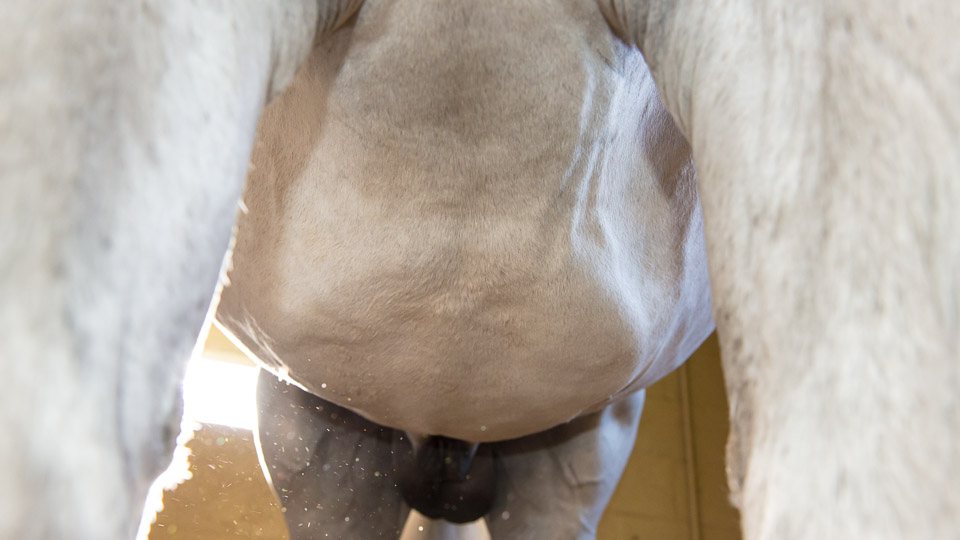
Horse Urinary System – An Introduction
Blood circulates throughout the body delivering all the materials needed to stay alive but it also acts as a system to recycle materials, return gasses and eliminate waste. In this sense it acts like the post office, the package delivery service, the messenger service and the recycling and trash service. This last part requires the blood to move through an incredible filtering system called the kidneys.
Kidneys are very smart organs because they not only remove the trash but they also monitor and regulate the pressures of the cardiovascular system and the levels of certain molecules in the system (electrolytes). It has its own system of hormones that talk with the brain, heart and all other systems of the body. When it senses there is too much fluid in the body it forms a fluid called urine. It senses blood pressure, osmolality (density) and temperature to name a few and through urine production (or lack of it), the kidneys regulate the other systems.
To prevent the elimination of urine constantly, the urine is stored in a bladder. Pressure receptors in the bladder sense the pressure there and signal the movement of the horse towards a spot, the posturing and the elimination of the urine from the body. There is more.
The urine has molecules in it that become unique to the individual and these molecules can mark out territory or attract a mate. The same for feces. These molecules link with the sense receptors in the nose that signals the amygdala of the brain to recall an emotion which signals the motor cortex that creates movement of the legs. Wow!
There are few problems with this system in horses. All mammals have quadruple (4 times) the amount of kidney they need to survive. In other words a horse can lose 75% of the kidney function without any outward signs of kidney failure. Beyond this things become bad. The immune system can cause a blockage of the filters. Too much salt intake can disrupt the gradient that filters the blood. Some antibiotics can destroy the kidney tissue. Formation of mineral stones can block the output in the kidney or the tubes to (ureters) and from (urethra) the bladder. Incontinence can lead to scalding of the skin where the urine dribbles. Most of these conditions are either life threatening or they are ongoing requiring care throughout the life of the horse.
Horse Urinary System – Discolored Urine
An excerpt is coming soon.
Horse Urinary System – Nephritis
An excerpt is coming soon.
Horse Urinary System – Uroliths (Bladder Stones)
An excerpt is coming soon.
Foal Diseases – Patent Urachus
An excerpt is coming soon.
Foal Diseases – Persistant Frenulum
An excerpt is coming soon.


Responses